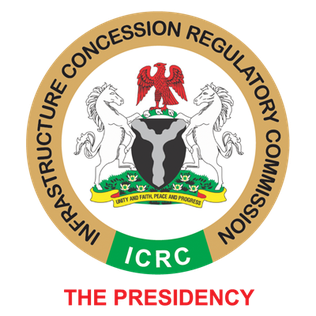A public–private partnership is a long-term arrangement between a government and private sector institutions. Typically, it involves private capital financing government projects and services up-front, and then drawing revenues from taxpayers and/or users for profit over the course of the PPP contract. Public–private partnerships have been implemented in multiple countries and are primarily used for infrastructure projects. Although they are not compulsory, PPPs have been employed for building, equipping, operating and maintaining schools, hospitals, transport systems, and water and sewerage systems.
Build–operate–transfer (BOT) or build–own–operate–transfer (BOOT) is a form of project delivery method, usually for large-scale infrastructure projects, wherein a private entity receives a concession from the public sector to finance, design, construct, own, and operate a facility stated in the concession contract. The private entity will have the right to operate it for a set period of time. This enables the project proponent to recover its investment and operating and maintenance expenses in the project.
A business proposal is a written offer from a seller to a prospective sponsor. Business proposals are often a key step in the complex sales process—i.e., whenever a buyer considers more than price in a purchase. When one person signifies to another their willingness to do or to abstain from doing anything with a view to obtaining the assent of the other to such act or abstinence, they are said to make a proposal.
E-procurement is the business-to-business or business-to-consumer or business-to-government purchase and sale of supplies, work, and services through the Internet as well as other information and networking systems, such as electronic data interchange and enterprise resource planning.

Bid rigging is a fraudulent scheme in a procurement action which enables companies to submit non-competitive bids. It can be performed by corrupt officials, by firms in an orchestrated act of collusion, or by officials and firms acting together. This form of collusion is illegal in most countries. It is a form of price fixing and market allocation, often practiced where contracts are determined by a call for bids, for example in the case of government construction contracts. The typical objective of bid rigging is to enable the "winning" party to obtain contracts at uncompetitive prices. The other parties are compensated in various ways, for example, by cash payments, or by being designated to be the "winning" bidder on other contracts, or by an arrangement where some parts of the successful bidder's contract will be subcontracted to them. In this way, they "share the spoils" among themselves. Bid rigging almost always results in economic harm to the agency which is seeking the bids, and to the public, who ultimately bear the costs as taxpayers or consumers.
A purchasing cooperative is a type of cooperative arrangement, often among businesses, to agree to aggregate demand to get lower prices from selected suppliers. Retailers' cooperatives are a form of purchasing cooperative. Cooperatives are often used by government agencies to reduce costs of procurement. Purchasing Cooperatives are used frequently by governmental entities, since they are required to follow laws requiring competitive bidding above certain thresholds. In the United States, counties, municipalities, schools, colleges and universities in the majority of states can sign interlocal agreements or cooperative contracts that allow them to legally use contracts that were procured by another governmental entity. The National Association of State Procurement Officials (NASPO) reported increasing use of cooperative purchasing practices in its 2016 survey of state procurement.

The Canadian Surface Combatant, formerly the Single Class Surface Combatant Project is the procurement project that will replace the Iroquois and Halifax-class warships with up to 15 new ships beginning in the mid to late 2020s as part of the National Shipbuilding Procurement Strategy.

Bidding is an offer to set a price tag by an individual or business for a product or service or a demand that something be done. Bidding is used to determine the cost or value of something.
Construction bidding is the process of submitting a proposal (tender) to undertake, or manage the undertaking of a construction project. The process starts with a cost estimate from blueprints and material take offs.
Fast-track building construction is construction industry jargon for a project delivery strategy to start construction before the design is complete. The purpose is to shorten the time to completion.

Infrastructure asset management is the integrated, multidisciplinary set of strategies in sustaining public infrastructure assets such as water treatment facilities, sewer lines, roads, utility grids, bridges, and railways. Generally, the process focuses on the later stages of a facility's life cycle, specifically maintenance, rehabilitation, and replacement. Asset management specifically uses software tools to organize and implement these strategies with the fundamental goal to preserve and extend the service life of long-term infrastructure assets which are vital underlying components in maintaining the quality of life in society and efficiency in the economy. In the 21st century, climate change adaptation has become an important part of infrastructure asset management competence.

A reverse auction is a type of auction in which the traditional roles of buyer and seller are reversed. Thus, there is one buyer and many potential sellers. In an ordinary auction also known as a forward auction, buyers compete to obtain goods or services by offering increasingly higher prices. In contrast, in a reverse auction, the sellers compete to obtain business from the buyer and prices will typically decrease as the sellers underbid each other.
The Light Rail Transit Line 6 is a proposed rapid transit system in Cavite, Philippines. There have been two proposals for the line, with the first one shelved immediately in 2018. Another proposal emerged in 2017 and is currently under review by the National Economic and Development Authority (NEDA).

Sangley Point Airport, also referred to as Cavite Airport, is a domestic airport at Sangley Point, Cavite City in the Philippines primarily serving general aviation and turbo-propped airliners in the general vicinity of South Luzon and the Greater Manila Area.

The Infrastructure Concession Regulatory Commission (ICRC) is an agency of the Federal Government of Nigeria responsible for the development and implementation of the Public-Private Partnership (PPP) framework for the provision of infrastructure services.

The North–South Commuter Railway (NSCR), also known as the Clark–Calamba Railway, is a 147-kilometer (91-mile) urban rail transit system under construction in the island of Luzon in the Philippines. Running from New Clark City in Capas to Calamba, Laguna with 36 stations and four services, the railway is designed to improve connectivity within the Greater Manila Area, and it will be integrated with the railway network in the region.

Light Rail Manila Corporation (LRMC) is a rail service company based in Pasay, Metro Manila, Philippines. It is a consortium of companies engaged in the operation and maintenance of the Manila Light Rail Transit System Line 1 since September 2015. The consortium is composed of Metro Pacific Investments Corporation and Sumitomo Corporation's Metro Pacific Light Rail Corp. (MPLRC); AC Infrastructure Holdings Corp. ; and Macquarie Infrastructure Holdings (Philippines) Pte. Ltd.

The Government Procurement Reform Act of 2003, officially designated as Republic Act No. 9184, is a Philippine law that prescribes the necessary rules to address the lack of transparency and competition in government procurement, eliminate collusion and interference, and lessen the delay in the procurement process by creating the Government Procurement Policy Board (GPPB) and PhilGEPs.








